14 essential Witcher 3 tips to know before you play
From Witcher 3 combat to alchemy, signs and more explained
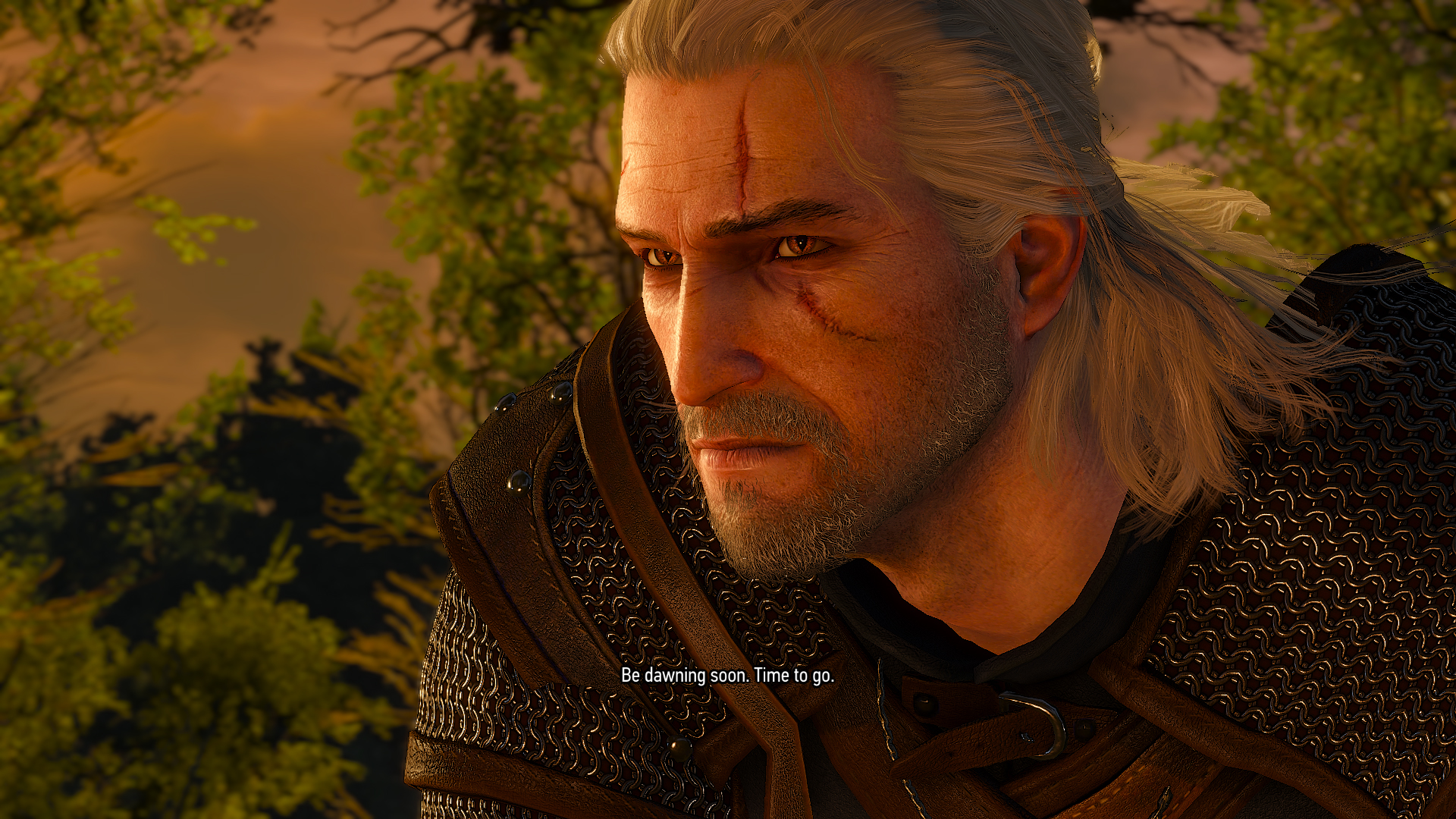
These Witcher 3 tips will help you master it's huge open-world with a lot less pain. From the combat system to magic, monsters, hundreds of missions, contracts, scavenger hunts and loads more - there's a ton of stuff to work out and it could take ages without a few pointers. The Witcher 3 is a huge and complex game and it can easily become a daunting experience if you don’t prepare.
Coming up we've got Witcher 3 tips to help you survive and progress further. Whether that's mastering alchemy and the various oils you can use, what magic signs to upgrade, and plenty more. We've got it all covered here in a big overview of all the basics you need to get started fast.
1. Alchemy is important to survival and combat
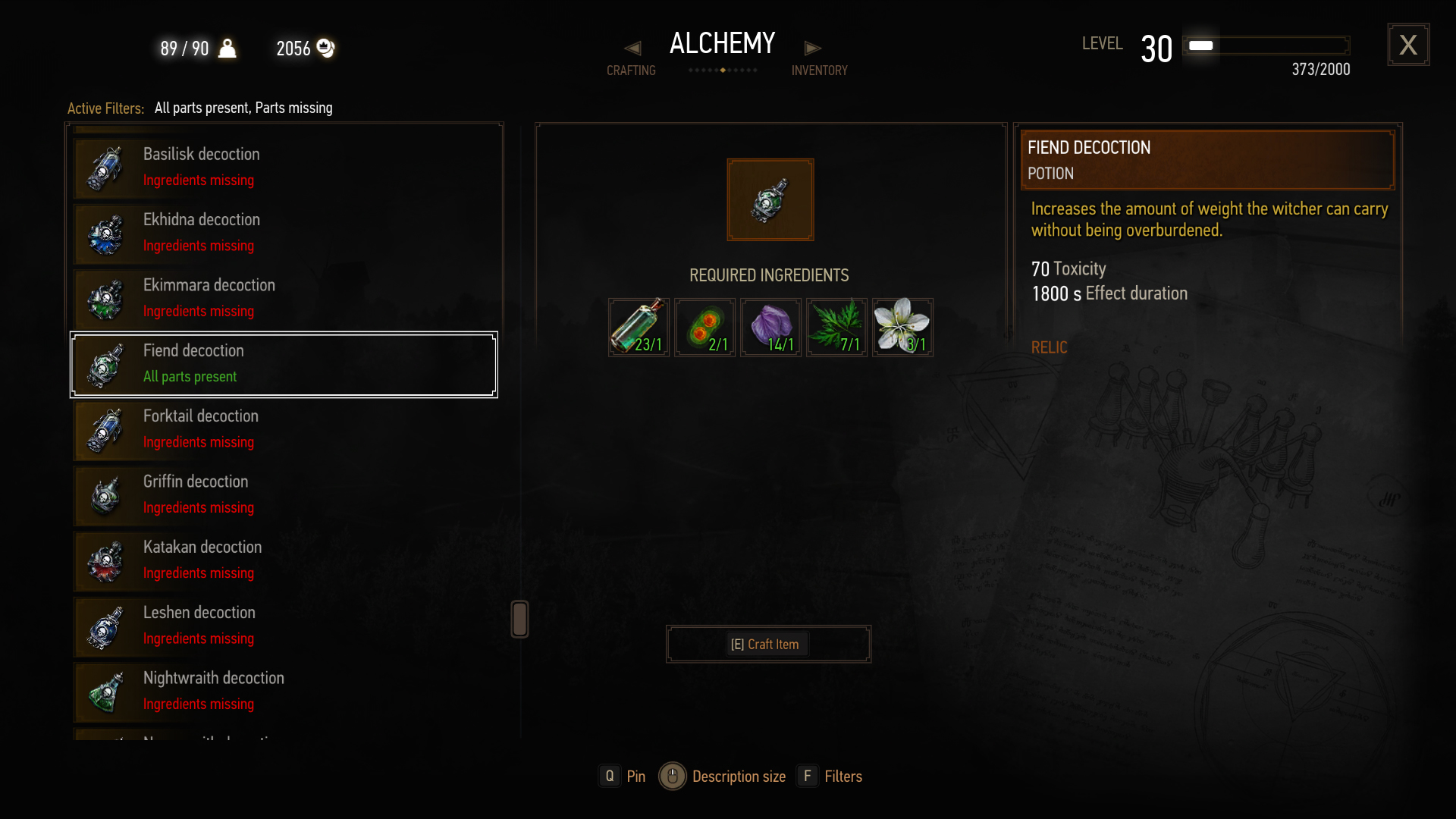
Alchemy is vital for a witcher, so mastering it is one of the more important tips. Most of the loot you’ll gather during your travels will likely serve a purpose later on, and it’s advised to spend a few minutes in the alchemy tab and check for available recipes. From here you can create oils for your weapons, bombs, and potions.
More recipes will become available for purchase from merchants and as loot, so always keep an eye for them. Swords and signs are important, sure, but never underestimate the use of potions or additional tools prior and during combat.
2. When using Roach, stick to the roads to travel further faster
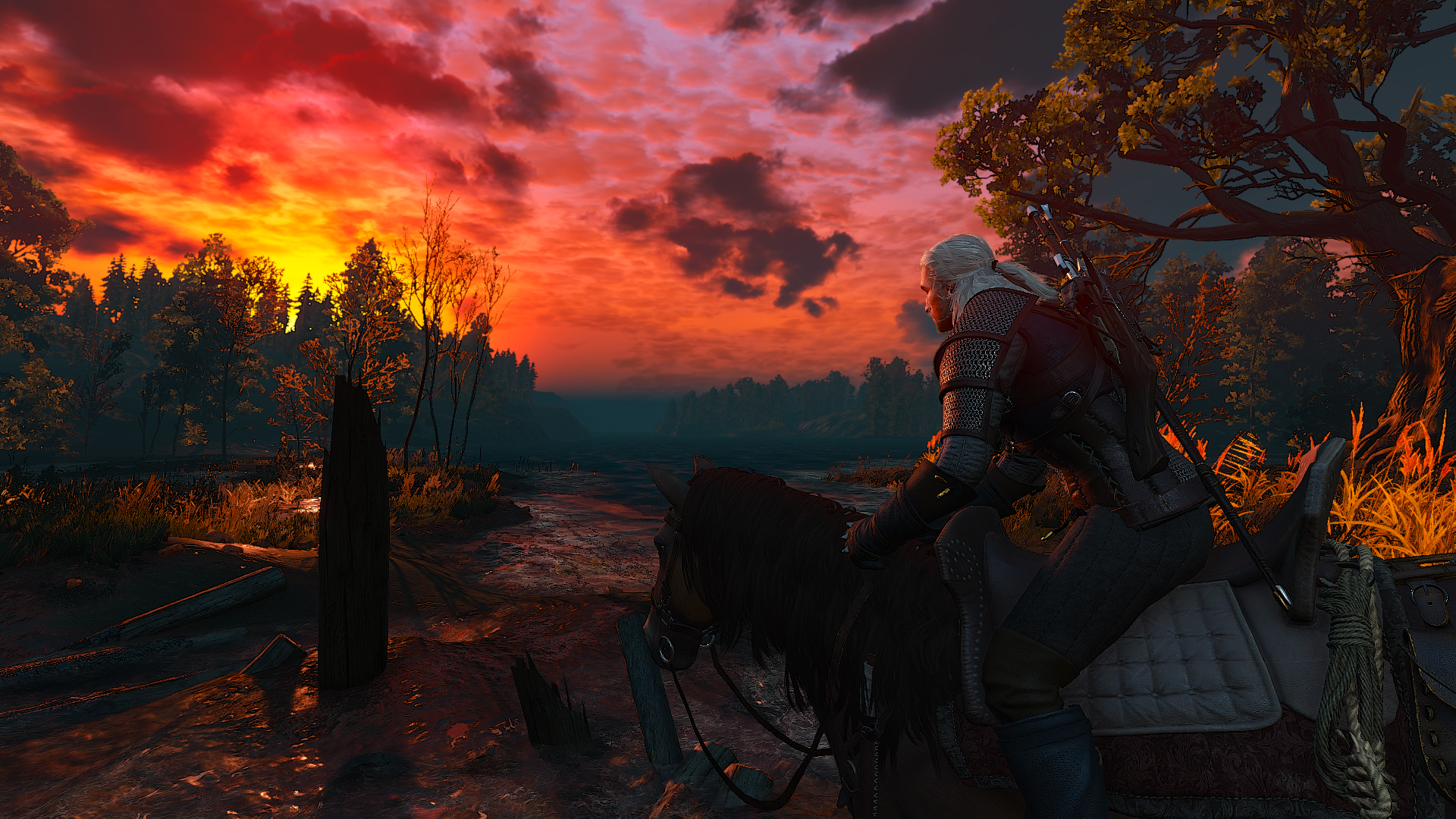
Roach is probably your best partner in the game, though it can get tiresome to always have to keep an eye on its stamina if you’re galloping. If you’re on a road, however, just double tap the designated button and Roach will just keep moving forward on its own - just move left or right from time to time to keep on the right track, and the rest will be automatic without the loss of stamina.
3. Invest in the Quen sign for protection
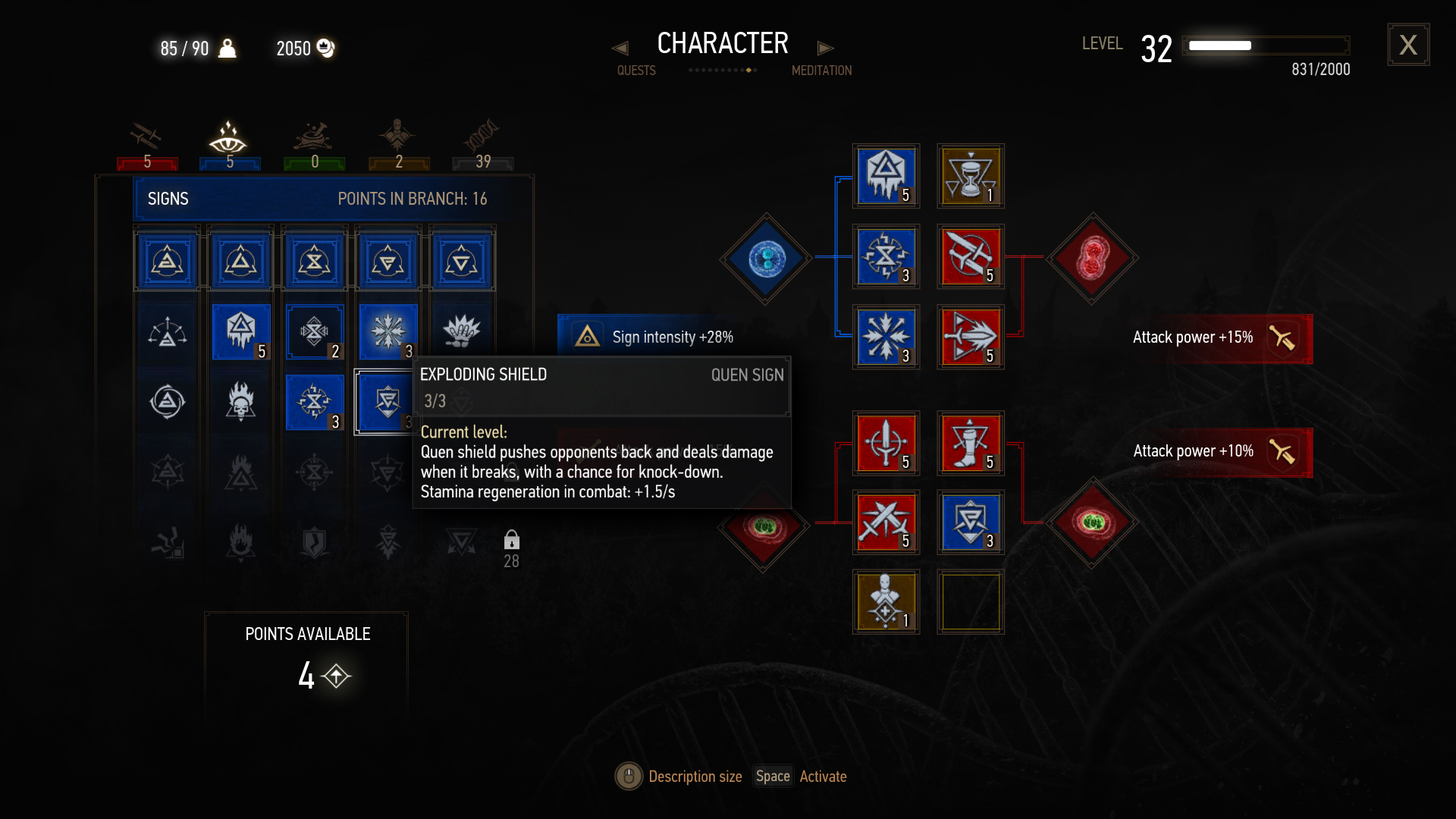
The Quen sign Geralt can cast can be extremely helpful during fights to protect you, especially when you obtain the Exploding Shield skill. This turns it into a protective field that can defend against attack while also dealing damage with a chance of knockdown.
Exploding Shield is in the first tier of skills so it won’t be too difficult to obtain it early. There's also the second skill in Quen’s tree, called Active Shield, as an interesting alternative. It provides you a much larger area of protection, and one upgraded will heal Geralt, depending on how much damage he absorbed per attack. It also no longer using Stamina while it’s activated.
4 The Axii signs great for combat and getting answers
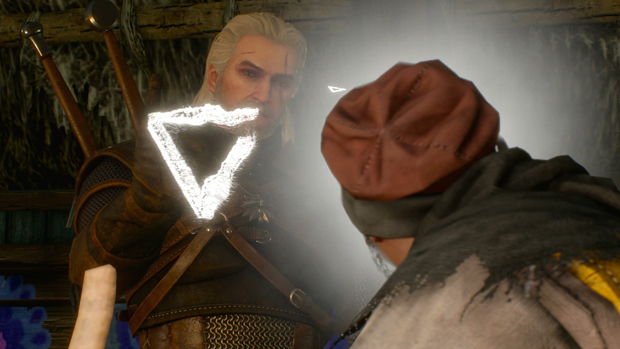
The Axii sign is an incredibly useful spell to use both aggressively and non-aggressively. Using Axii on enemies in combat will temporarily stun them, allowing you to either land a slower, heavy strike while they're defenseless, or focus on others if there's a large group to deal with. More interestingly, Axii can also be used in dialogue to influence people, opening up new options to avoid fighting, paying for things, or accessing new info.
5. Oils give you a useful buff in combat
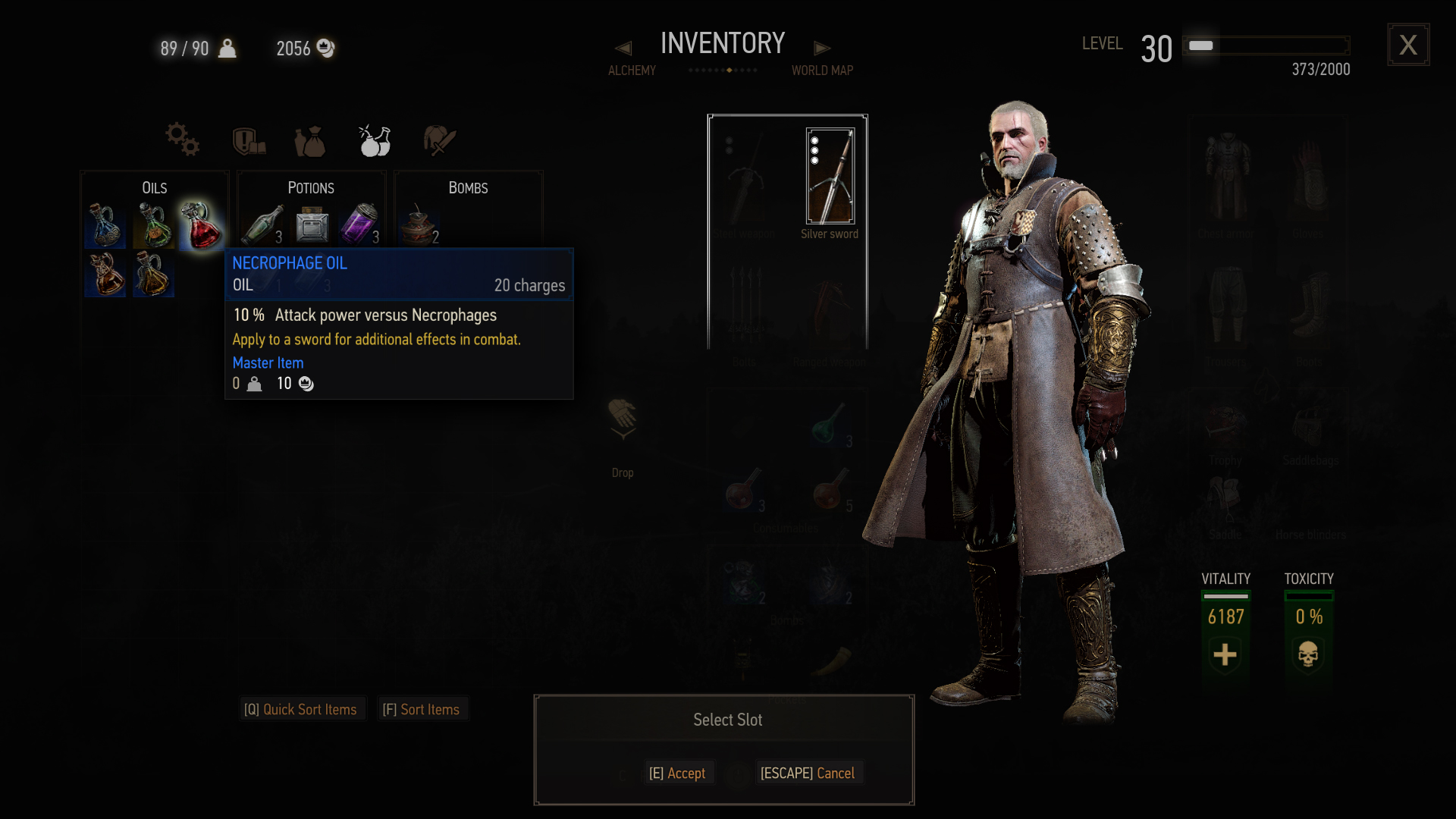
Oils are basically temporary upgrades you can apply to weapons in The Witcher 3 on top of their default stats, and have a particular purpose. Most of them will increase the effectiveness of your swords towards a type of enemy, with strengths and weaknesses playing a big part of it. So always have a few on your inventory, since you never know when you’ll need the extra advantage against a dangerous foe.
6. Check the local board whenever you arrive anywhere new
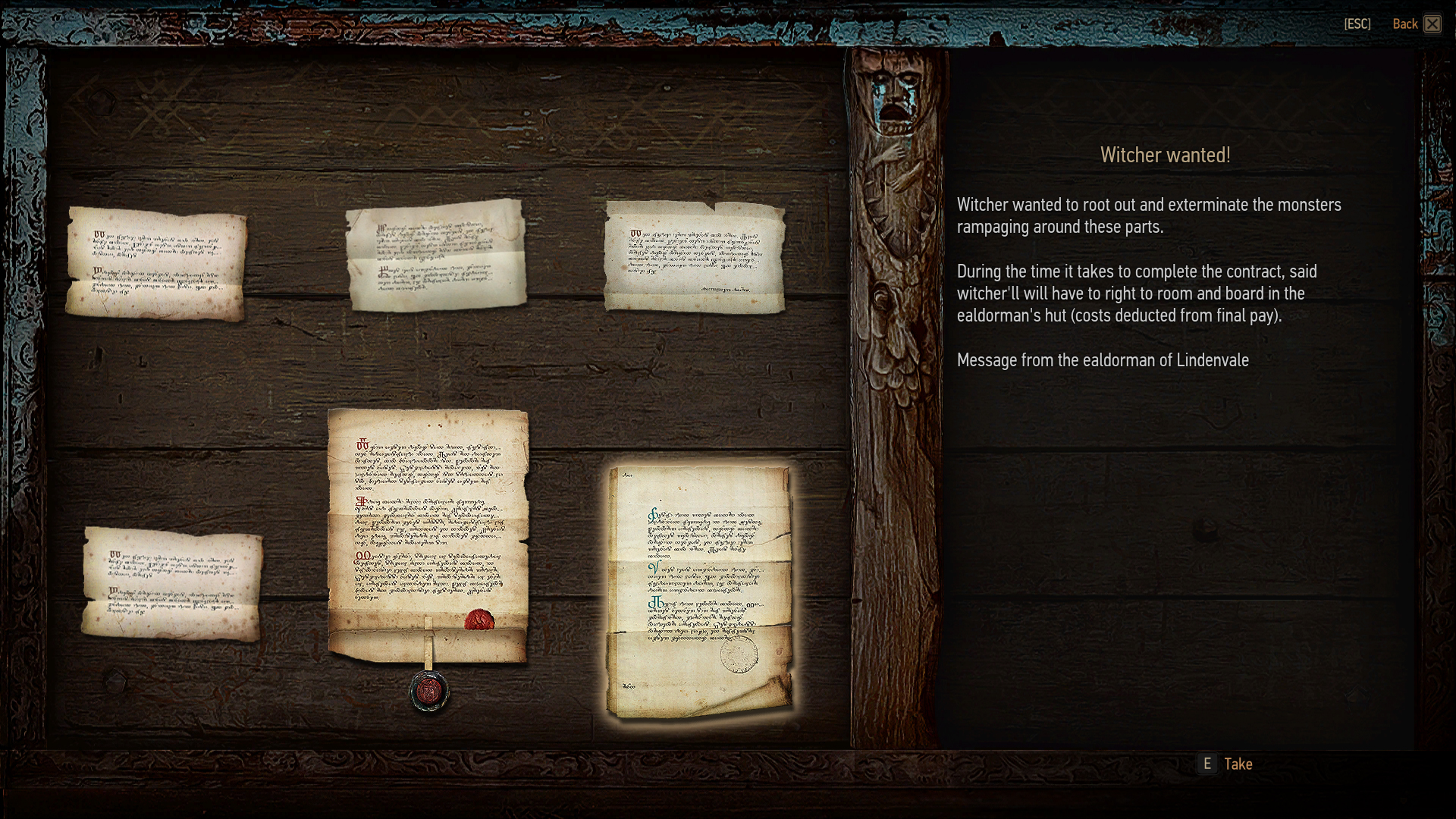
A good Witcher 3 tip is to check the local message boards whenever you reach a new location. These will be filled with new contracts and side missions, unlock new question marks to investigate on the map, and even offer up helpful bits of information on your current objectives. Worst case scenario, you always get to read a silly tale about the town and its whereabouts.
7. Learn the difference between dodging and rolling in combat
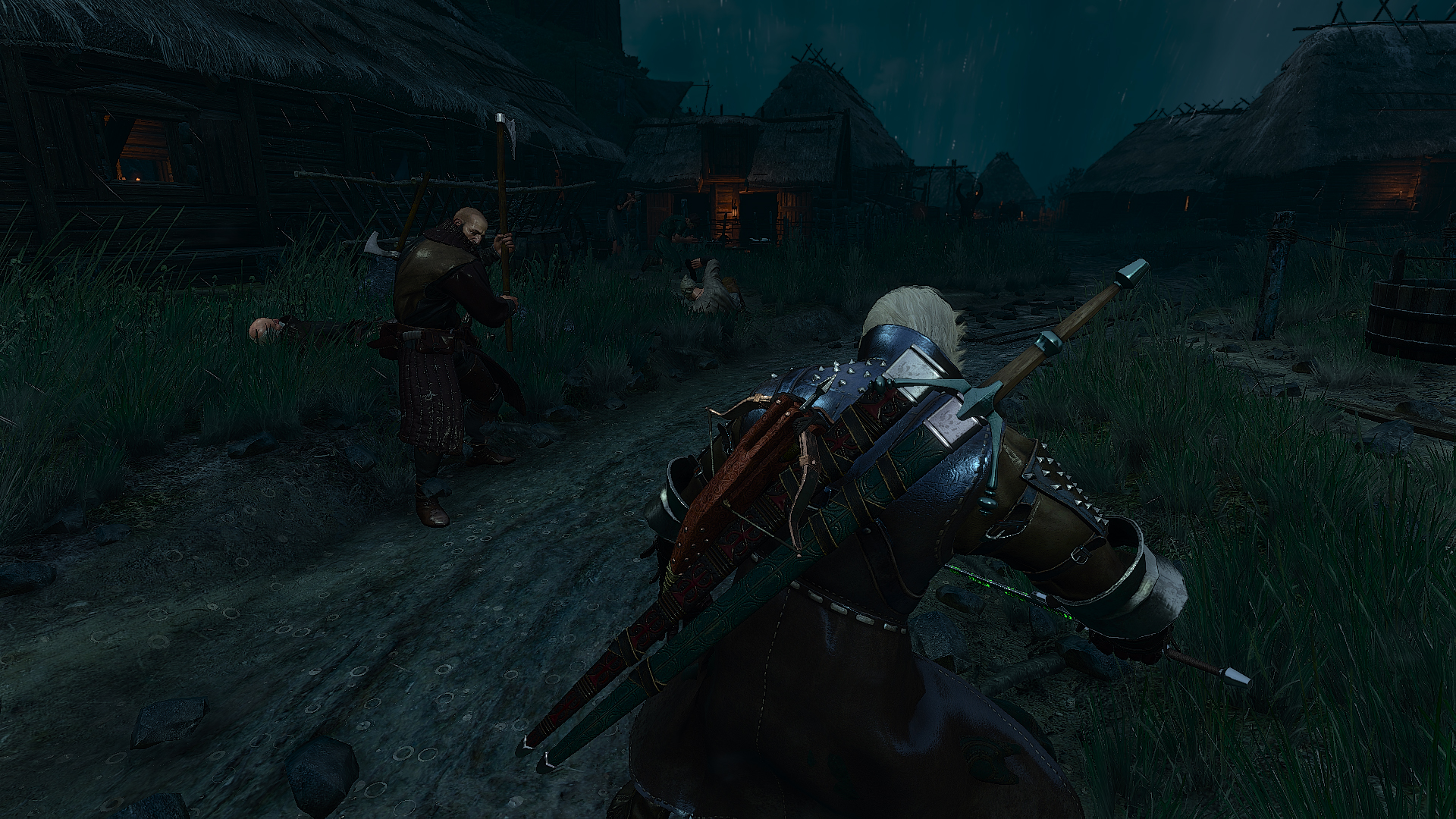
Dodging and rolling obviously serve a similar function - getting out of the way of an attack - but knowing when to use which can make a huge difference to your combat effectiveness. Whenever Geralt dodges he makes a short quick movement in the direction you choose. Rolling is similar, but you cover more ground and it takes longer to get back on your feet to fight back
If you’re fighting a bandit or a Drowner, or any smaller human-ish sized enemy dodging is all you need to get the small window you need to strike back as your foe misses. Rolling, on the other hand, works best against bigger enemies that usually have more bigger, undodgeable attacks, or cover a wider area with each swing, like Golems. Practice both and learn enemy patterns to work out which is best to use in any given fight.
8. Parrying can save your life often
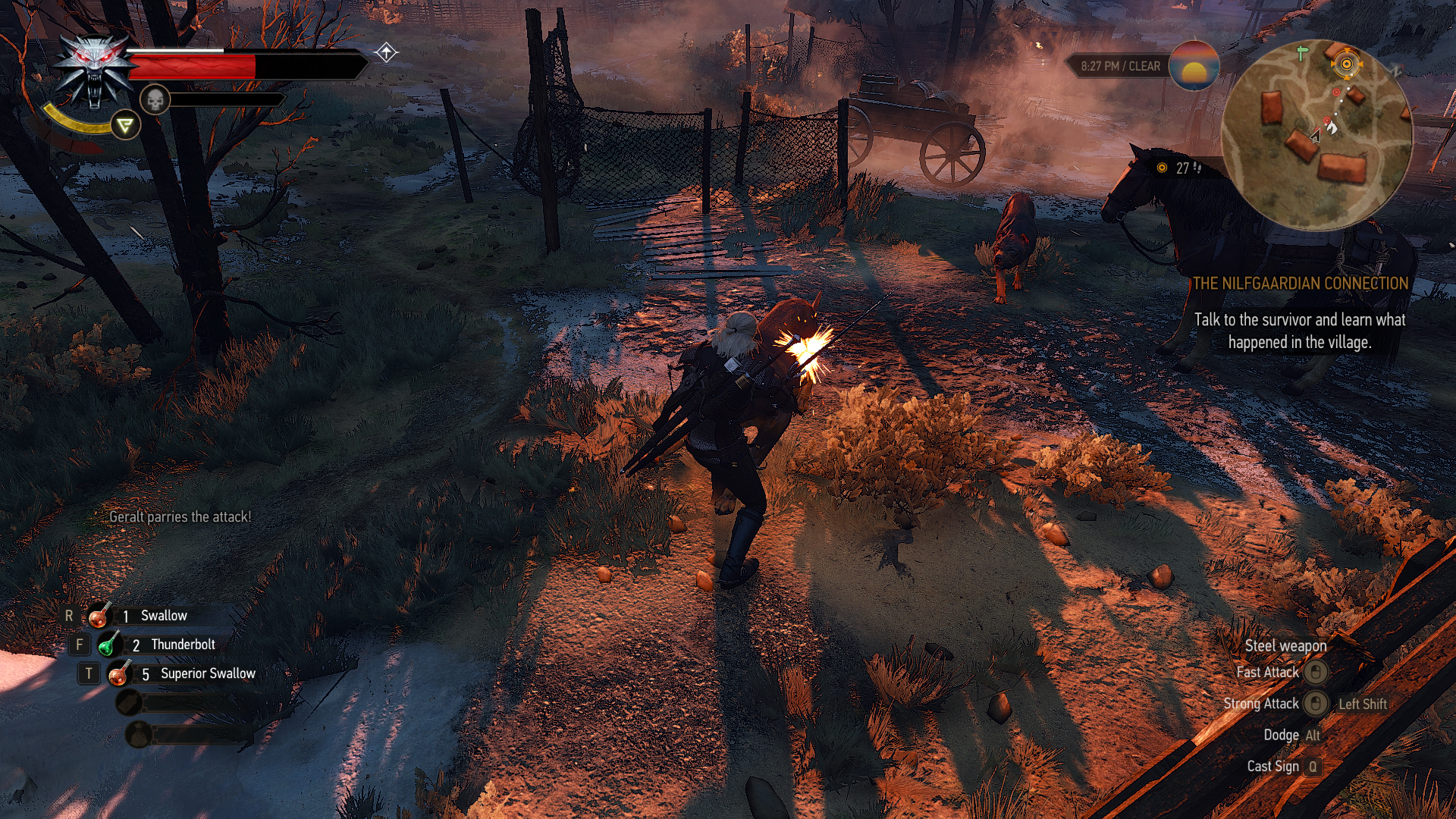
Speaking of combat, Geralt can also perform a parry that can be hit or miss depending on the enemy, but it’s still worth your attention. During fights, the white wolf can block incoming attacks with his swords. Depending on the timing, he can trigger a parry and deny all damage. The trick is when to do it...
If you're having trouble with the timing of a good parry, a good tip is that as you’re holding down the block button, wait until an enemy’s name turns red - indicating they're about attack - and then lift your finger and press it again quickly right before the strike lands. Even if you miss you should still get a block.
Just remember not everything can be parried, and the skill is best used on enemies at a similar or lower height to Geralt.
9. Look out for armorer’s tables and grindstones and use them for combat buffs
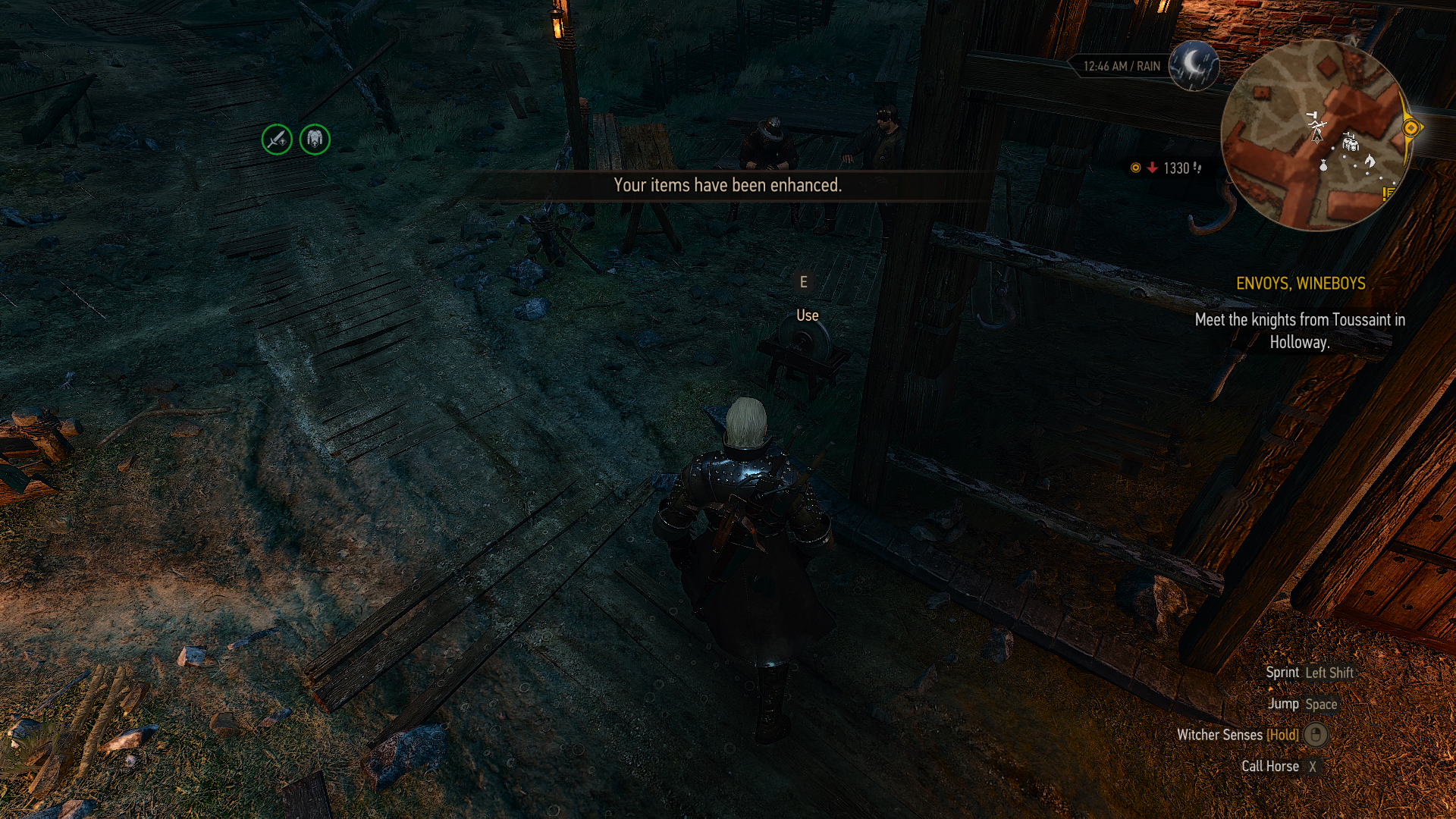
Armorer’s tables and grindstones are usually found near blacksmiths and armorers. These can be activated for free, and grant a 20% boost to armor and weapons for 15 minutes. It's basically free extra damage and protection, so always make sure to look for them and activate them before a tough fight or mission.
10. Get a saddlebag for Roach to increase your inventory limit
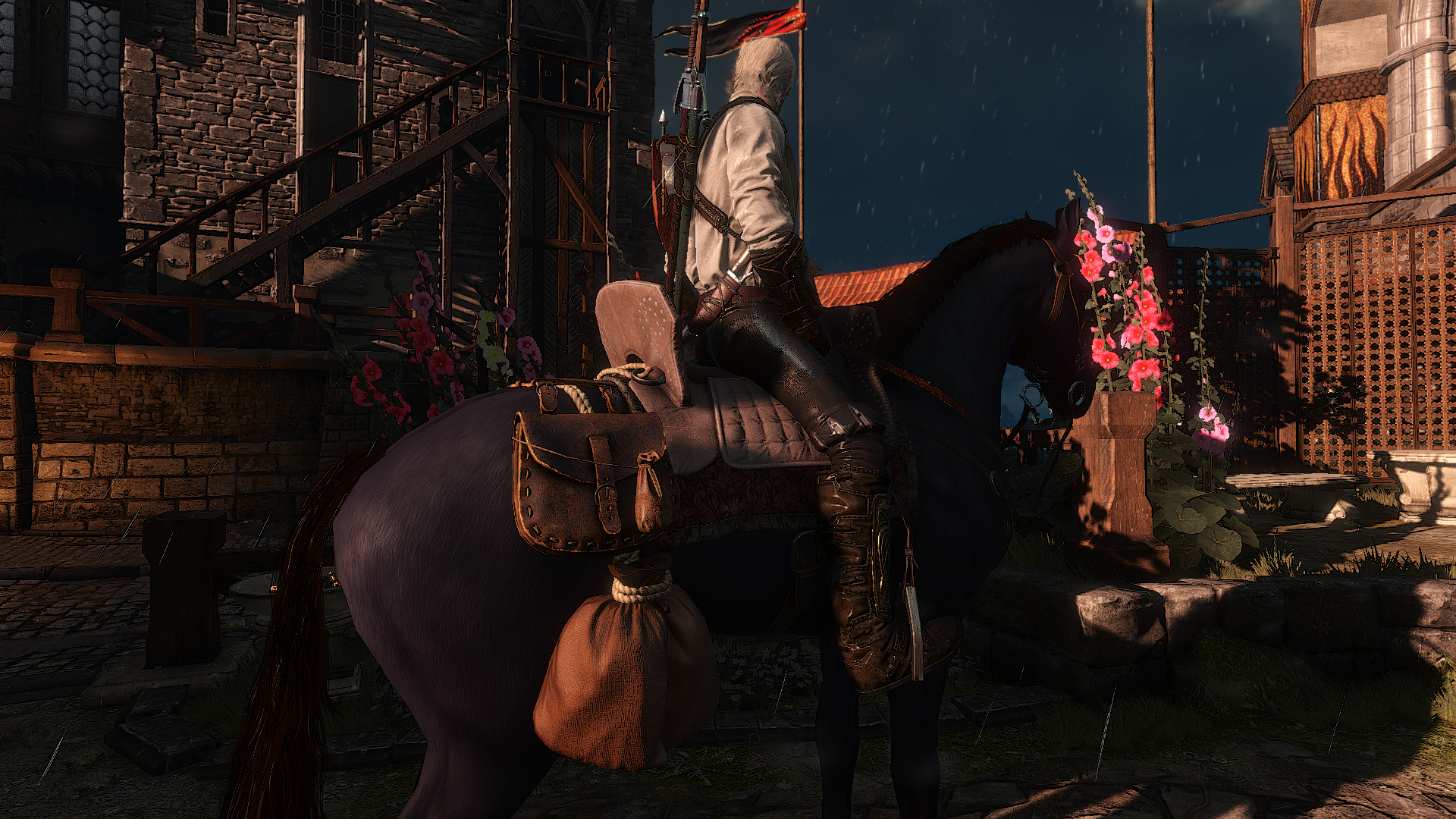
Weight is a crucial part of The Witcher 3, and getting over encumbered with resources and gear can be a pain. Luckily, Roach can give a helping hoof with saddlebags to lighten the load. They aren’t easy to find, but they’re worth the investment to increase your inventory limit early on - look for a quest concerning horse races near to Crow’s Perch, in which you’ll obtain one as reward.
11. You can change Geralt’s hair and beard style
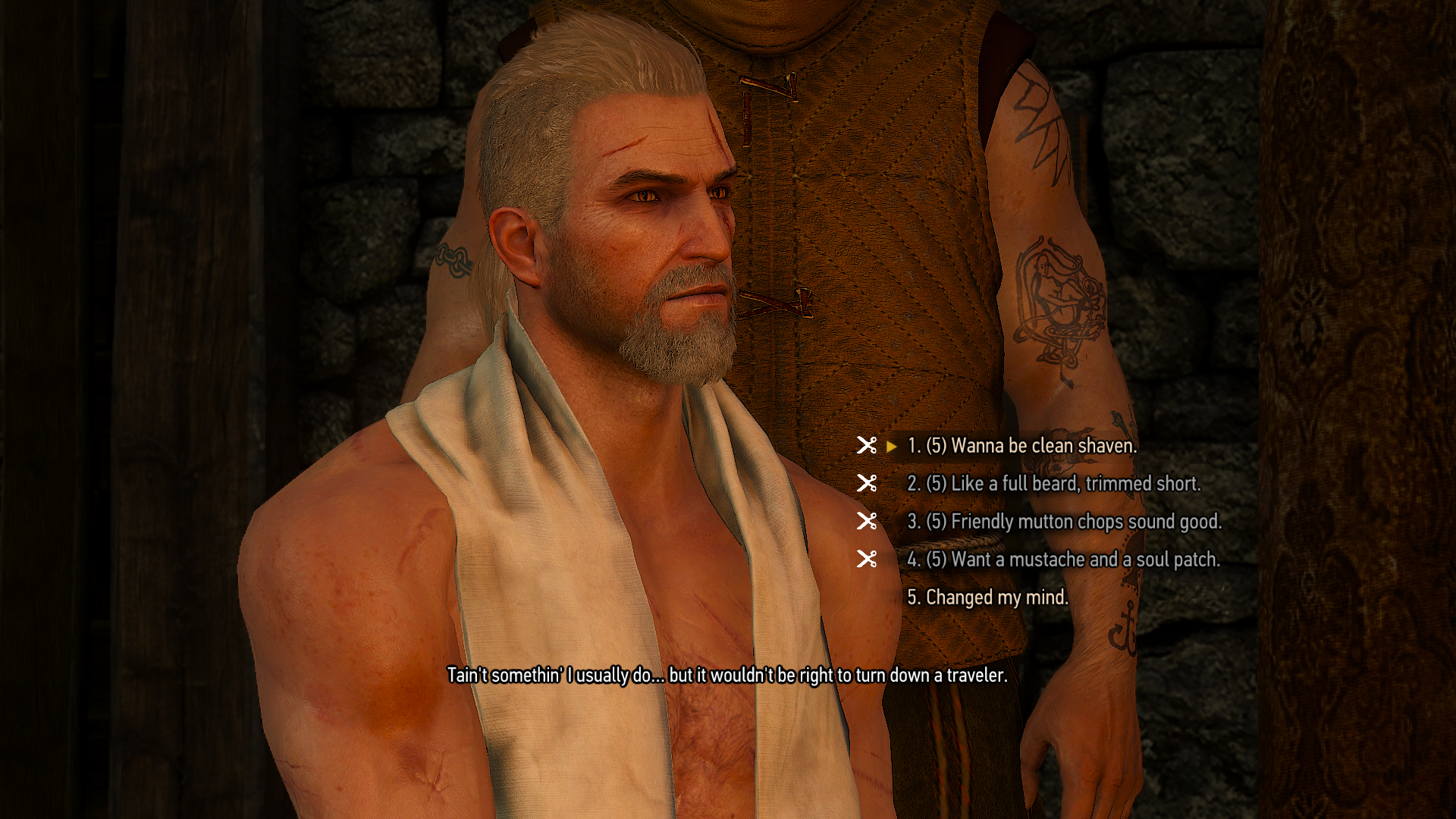
Once you get to Novigrad, and a few other major cities, look for a shop that has giant scissors on the front door. For a small fee, a barber will change Geralt’s hair and beard style independently, with different options available if you activated the corresponding free DLC. This is great to give Geralt a fresh look, or to trim his beard whenever it gets too long after a few in-game weeks.
12. Save regularly outside of missions
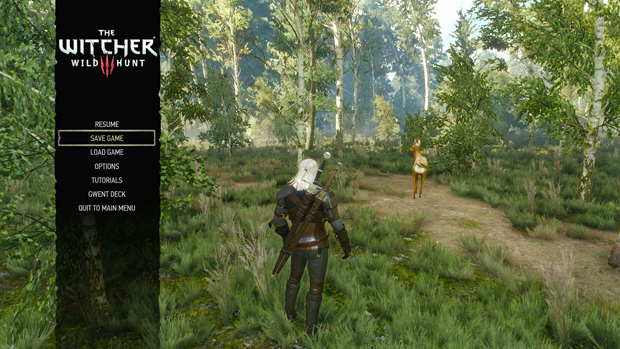
Progress is automatically saved after completing objectives, and at various other checkpoints while working through quests. But due to the unpredictability of events in the world it's risky to rely on this. Especially while exploring where you can be doing loads for ages and never trigger a checkpoint. So if you're not following a particular quest make sure you make regular manual saves. That way you won't lose too much progress should you get ambushed or accidentally fall off a cliff.
13. Keep your vitality up
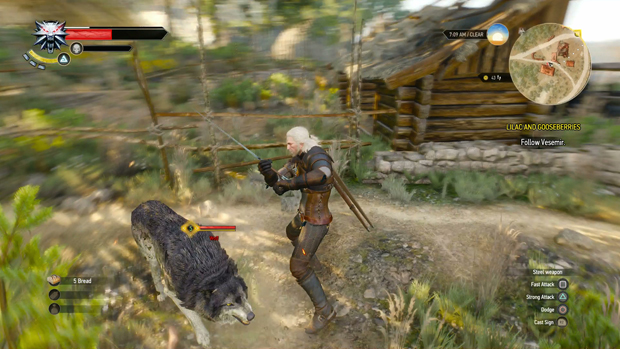
Your vitality only regenerates automatically when not in combat, and even then it only replenishes very slowly. Make sure you have at least one type of food equipped to a consumable slot, so you can quickly use it during combat to recover some health - the longer the regeneration effect duration the better. If your vitality gets too low during a fight and it looks like you can't recover in time, there's always the option to run and live to see another day. Unless you're playing on a higher difficulty level, you can also meditate to recover vitality, and you only need to move the clock on to the next hour to completely refill your meter.
14. Loot everything (when no one's looking)
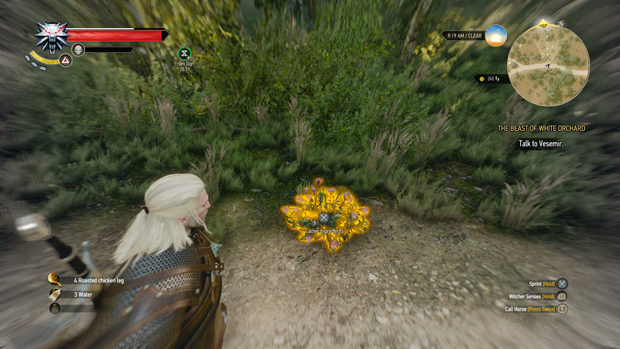
Loot everything you see, as there are all sorts of useful items that can be found in crates and barrels, as well as lifted from the bodies of defeated enemies that are marked with an X on your minimap. Use your Witcher Senses to highlight any items nearby that can be nabbed, but be wary when guards are around as they don't like theft. If you do get caught stealing you'll likely end up in an unnecessary fight.
The 'grab everything in sight' approach particularly applies to alchemy ingredients such as plants and animal parts, as there are hundreds of different components to harvest and you'll need specific combinations of ingredients in order to craft new alchemy items. The good news is that once you've successfully made a particular item, you no longer need to harvest the ingredients to make more, as you can just use alcohol to keep your supply topped up.
Witcher 3 romance | Witcher 3 armor | Witcher 3 side quests and contracts | Witcher 3 ending | Witcher 3 best Gwent cards | Best Witcher 3 mods | Witcher 3 places of power | Witcher 3 side quests | Witcher 3 contracts | Witcher 3 monster killing
Witcher 3 Master of the Arena | Witcher 3 Ladies of the Wood | Witcher 3 Wandering in the Dark | Witcher 3 Following the Thread | Witcher 3 Family Matters
Weekly digests, tales from the communities you love, and more

Diego is a freelance journalist from Argentina who learned English thanks to video games. He now primarily covers them for the New York Times, Rolling Stone, Vulture, Polygon, and more. He also founded Into the Spine and co-hosted the Turnabout Breakdown podcast.
- Leon HurleyManaging editor for guides


